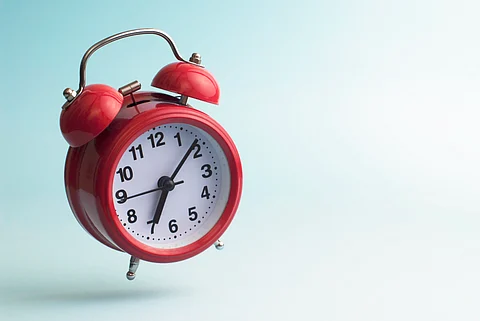

ISTOCK
Long before smartphones and smartwatches jolted us awake with buzzing alerts, people had to get creative about waking up on time. In fact, the idea of an alarm clock goes back thousands of years! The ancient Greeks are said to have built water clocks with a special mechanism that could trigger a sound — like a whistle or pebbles dropping onto a gong — at a set time. It wasn’t exactly precise, but it did the job.
But the world’s first mechanical alarm clock — the kind closer to what we use today — was invented in 1787 by Levi Hutchins, a clockmaker in New Hampshire, USA. The twist? His clock rang only at 4 am. Why? Because Levi wanted to wake up early to start his day, and he designed the clock specifically for his own routine. He never intended to sell it or make it adjustable!
The first adjustable mechanical alarm clock didn’t appear until 1847, when a French inventor named Antoine Redier made one that allowed users to set their own alarm time.
So, why invent alarm clocks at all? The answer is simple: humans have always needed help getting up for important things — from farming and prayers to factory shifts and school bells. As society grew more time-bound and scheduled, alarm clocks became essential.
Today, they’re more than just timekeepers. They’re motivators, school starters, and — for many — the most annoying part of the morning.
Ancient Greeks built water clocks that triggered noises — like pebbles dropping on a metal plate — to wake people up.
Before alarm clocks, many relied on roosters to crow at dawn. But cloudy days or indoor roosters often messed up the schedule!
Levi Hutchins built his alarm in 1787 just to wake himself up — and didn’t even consider adding a setting to change the time.
In the 1800s, some alarm clocks were designed to light a match or fire a small cap gun to make sure you got out of bed!
Called “wakey men” or “knocker-uppers,” they were hired to knock on people’s windows with sticks to wake them up for work.